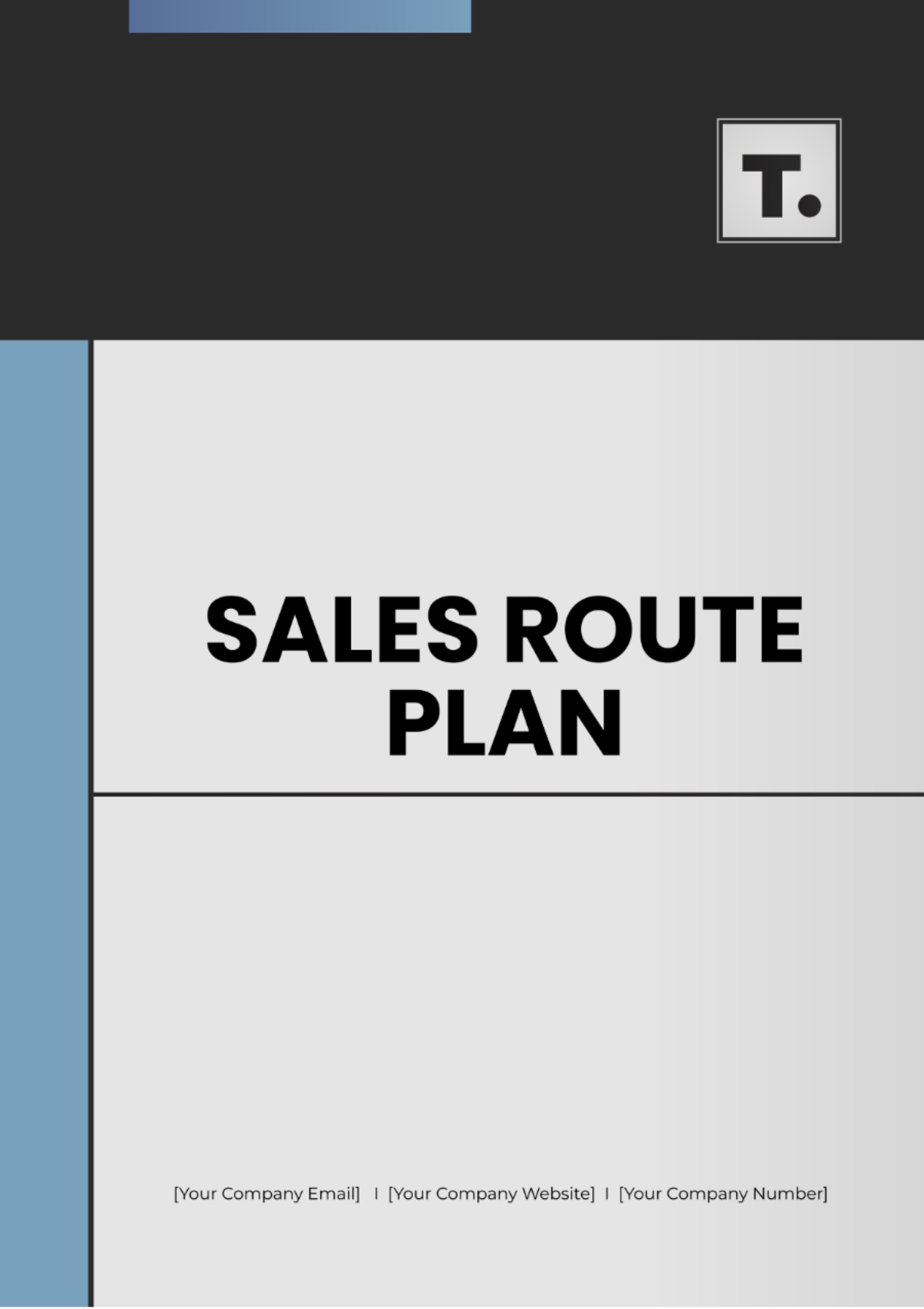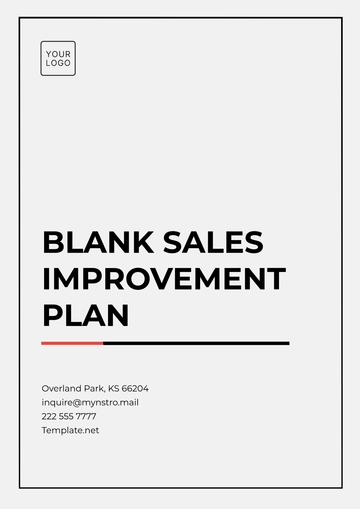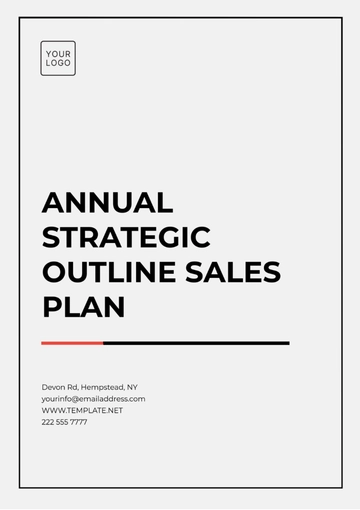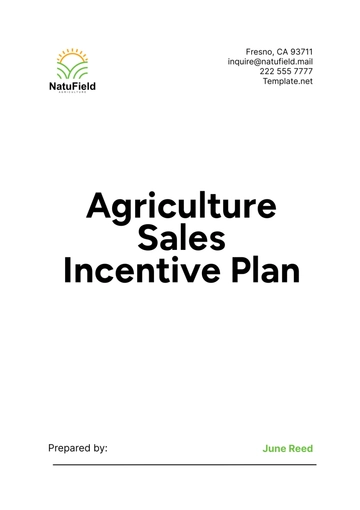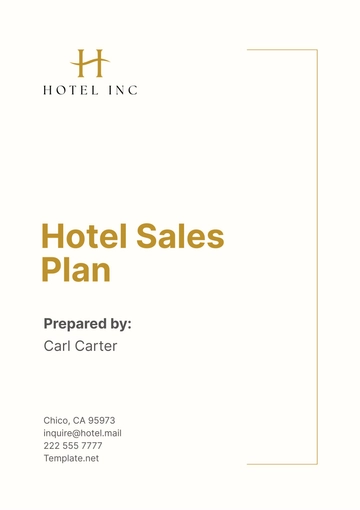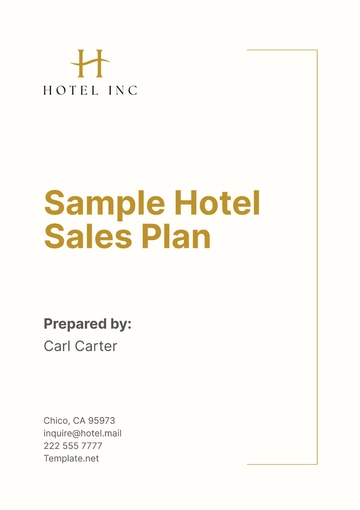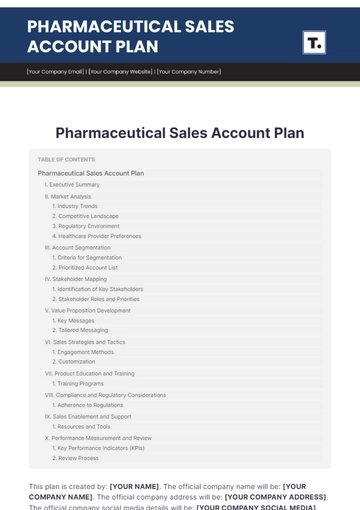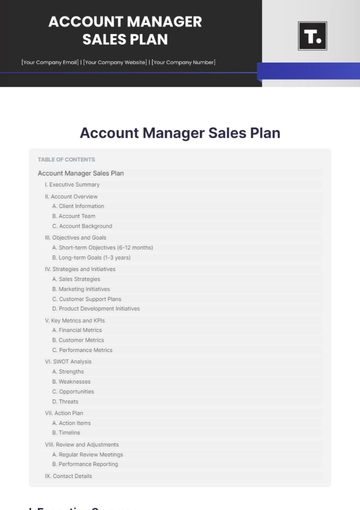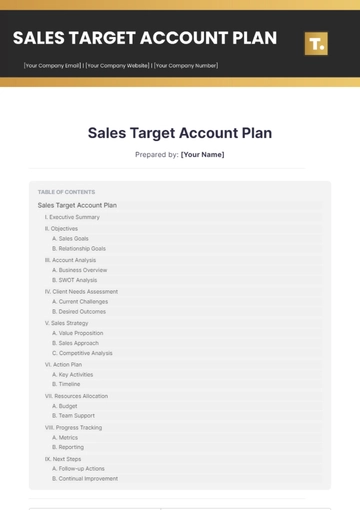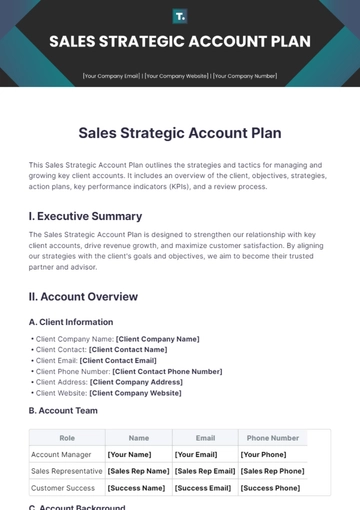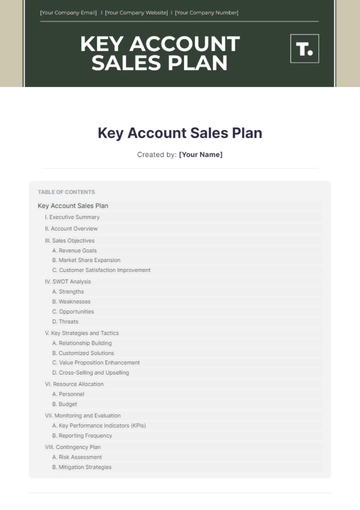Sales Route Plan
Written by: [Your Name]
I. Introduction
The Sales Route Plan aims to revolutionize [Company Name]'s sales team's approach to travel and visitation, enhancing efficiency and maximizing sales opportunities. By strategically planning routes and customer visits, we can optimize resource utilization and drive revenue growth.
II. Objectives
III. Territory/Region Breakdown
The sales territory is divided into three main regions: North, South, and West. Each region is further segmented into smaller territories based on customer density and geographic proximity.
Region | Cities |
|---|
North Region | New York, Boston, Philadelphia |
South Region | Atlanta, Miami, Houston |
West Region | Los Angeles, San Francisco, Seattle |
IV. Customer Information
Retail Store | Address | Contact Name | Phone Number | Operating Hours |
|---|
Retail Store A | 123 Main Street, Springfield, Greenfield County | John Smith | (555) 123-4567 | Monday-Saturday 9:00 AM - 8:00 PM, Sunday 10:00 AM - 6:00 PM |
Retail Store B | 456 Elm Avenue, Oakwood, Pinecrest County | Jane Doe | (555) 987-6543 | Monday-Friday 8:00 AM - 7:00 PM, Saturday 9:00 AM - 5:00 PM |
Customer profiles include contact details, purchasing history, product preferences, and any specific requirements or feedback.
Utilizing our CRM system, we have categorized customers into different segments based on their industry, size, and purchasing frequency.
V. Schedule/Timeline
Week | Date | Activity | Location |
|---|
Week 1 | June 1, 2050 | Visit Retail Store A | Springfield |
Week 1 | June 2, 2050 | Visit Retail Store B | Oakwood |
Week 1 | June 3, 2050 | New store prospecting | Meadowvale |
Week 1 | June 4, 2050 | Visit Retail Store C | Maplewood |
Week 1 | June 5, 2050 | Follow-up with Retail Store D | Cedarville |
Week 1 | June 6, 2050 | Rest day | - |
Week 1 | June 7, 2050 | Visit Retail Store E | Brooksville |
VI. Route Optimization Strategies
VII. Communication and Reporting
Sales representatives will maintain regular communication with the sales operations team, providing updates on visitation schedules, customer feedback, and sales progress.
VIII. Performance Evaluation
IX. Adjustment and Continuous Improvement
X. Conclusion
The Sales Route Plan represents a strategic initiative to optimize [Company Name]'s sales operations and drive sustainable growth. By leveraging technology, data-driven insights, and proactive communication, we aim to elevate the performance of our sales team and deliver exceptional value to our customers.
Plan Templates @ Template.net
